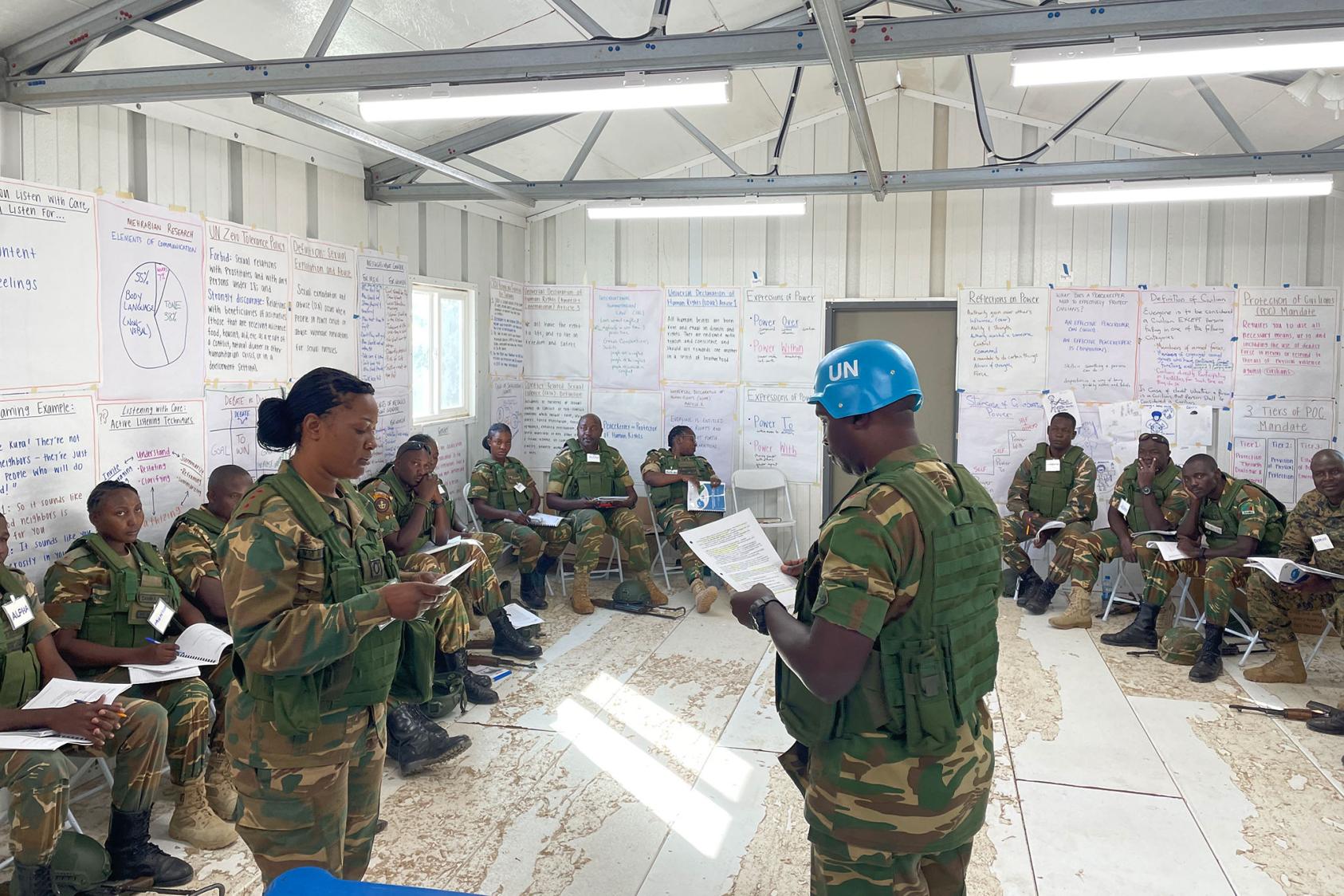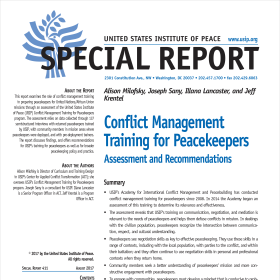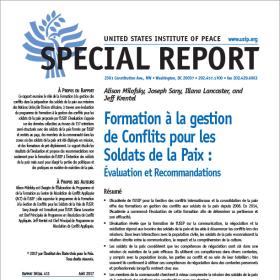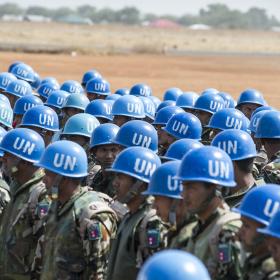In 2004, the U.S. Department of State attended a lessons-learned conference in Rwanda, where commanders returning from Darfur reported that much of their peacekeeping work involved some form of negotiation. They expressed the need for their successors to receive training in conflict management skills in order to succeed, which their pre-deployment training dedicated very little focus to at the time. To fill this training gap, the U.S. Department of State approached USIP in 2008 to deliver conflict management trainings for peacekeepers as part of the U.S. contribution to peacekeeping in Africa.

Program Description
The CMTP program fills a major gap in pre-deployment training, which frequently excludes in-depth training on community engagement. USIP, alongside the U.N. Institute for Training and Research (UNITAR), provides the knowledge and skills for peacekeepers to build more effective relationships with communities. With historically significant — and now growing — tension between peacekeeping mission personnel and communities, the program is a critical resource for mission leadership to more effectively prevent and resolve conflict and reduce threats to both civilians and peacekeepers. USIP’s training reinforces key components of the U.N.’s core pre-deployment training materials delivered by UNITAR to further prepare peacekeepers to protect civilians.
Every single peacekeeper who deploys in this battalion, and others, should receive this training because it saves lives.
Training
USIP’s trainings incorporate a relationship-based approach — all skills are developed for the purpose of building relationships among the parties in conflict with one another, while managing the conflict itself — and are designed to meet the specific needs of complex peacekeeping operations. The training focuses on civilian protection and includes five core modules:
- Reflecting on and understanding the mission mandate (with a particular focus on the Protection of Civilians mandate), the Universal Declaration of Human Rights and the notion of humility in the peacekeeping context.
- Reflecting on and studying individual and collective biases and dynamics relating to gender and power relations and how these impact perceptions. In this section, participants are also exposed to the framework designed for the prevention and combat of sexual exploitation and abuse in peacekeeping contexts.
- Understanding and practicing communicating with care.
- Studying conflict styles, conflict analysis and conflict management tools and techniques.
- Mediation in practice: the capstone exercise.
The training typically lasts one week and is participant-centered, immersive, experiential and scenario-based. USIP’s training is regularly singled out for its effectiveness and impact.
[Mediating an inter-tribal conflict] … highlights the critical importance of strong communication and negotiation skills in peacekeeping operations. By actively listening, building trust, and facilitating dialogue, UN military soldiers can contribute significantly to conflict resolution, community engagement, and the overall success of the mission
Impact
- Nearly 10,000 soldiers have been trained from 22 African militaries including: Benin, Burkina Faso, Burundi, Cameroon, Chad, Cote d’Ivoire, Djibouti, Gabon, Ghana, Guinea, Malawi, Mauritania, Niger, Nigeria, Republic of the Congo, Rwanda, Senegal, Sierra Leone, Tanzania, Togo, Uganda, and Zambia.
- Hundreds of soldiers from three Indo-Pacific militaries — Indonesia, Malaysia, and Nepal — are currently undergoing training.
- The soldiers who have been trained by USIP (through more than 250 trainings so far) have deployed into eight of the most important international peacekeeping missions including: the U.N. missions in Mali, Democratic Republic of Congo, South Sudan, Central African Republic, and Lebanon; the joint African Union/U.N. mission in Darfur; the African Union mission in Somalia; and the ECOWAS mission in Gambia.
- USIP is training a cadre of English and French-speaking trainers who will carry on this training under the auspices of the African Union and regional commissions.
Past Events

The Evolution of Peacekeeper Training
On July 14, USIP and the U.N. Institute for Training and Research held a conversation on what peacekeeping trainers need to focus on to improve mission performance and outcomes as peacekeeping missions increase in complexity.
I used to believe that peacekeeping is violence based, now l believe it can be nonviolent.


